No clearance, no answers: How a controversial figure took over Dhaka North City Corporation
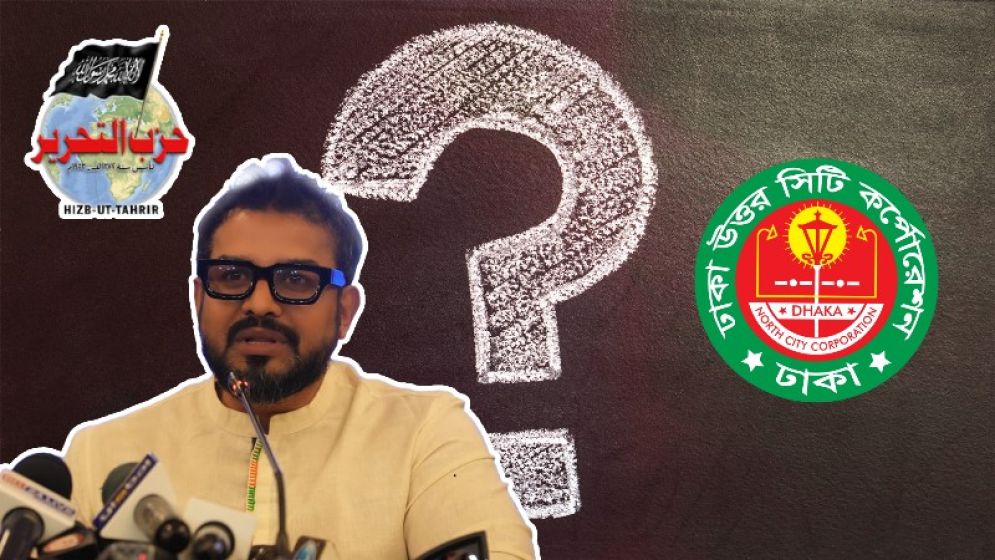
In early February, eyebrows were raised across Bangladesh’s political and civic circles when the Dhaka North City Corporation (DNCC) quietly appointed a relatively obscure figure from the private sector to its top administrative post.
Mohammad Azaz, previously known for heading a little-known think tank, the River and Delta Research Center (RDRC), was named the administrator of DNCC.
On the same day, the government appointed a seasoned bureaucrat, Additional Secretary Md. Shahjahan Mia, as administrator of Dhaka South City Corporation. In stark contrast, Azaz's sudden ascent lacked the conventional pedigree of public service.
Within days, he was appearing in national media, promising sweeping administrative reforms, a full digital transformation of civic services, and a bold new push for accountability.
In March, Azaz represented Dhaka at a global urban summit in Paris attended by delegates from over 60 cities, including 12 mayors. On that international stage, he made headlines by urging developed nations to offer financial grants–not loans–to developing cities grappling with rapid urbanization and environmental challenges.
To the public, it seemed the sluggish machinery of Dhaka’s city governance might finally have found a dynamic new driver.
But beneath this reformist façade, an unsettling history began to surface.
An investigation by Bangla Outlook, reveals that Mohammad Azaz was once a prominent leader of Hizb ut-Tahrir, an Islamist organization banned in Bangladesh for promoting extremist ideologies.
While concrete audiovisual evidence tying Azaz directly to the group’s activities is yet to be found, official documents and police reports obtained by Bangla Outlook indicate long standing links.
According to law enforcement records, Azaz was arrested on two occasions in connection with activities associated with Hizb ut-Tahrir. His name appears in a list of senior members compiled by the City Special Branch of the Dhaka Metropolitan Police, and he is referenced in a court submission related to a 2014 case filed at Agargaon Police Station.
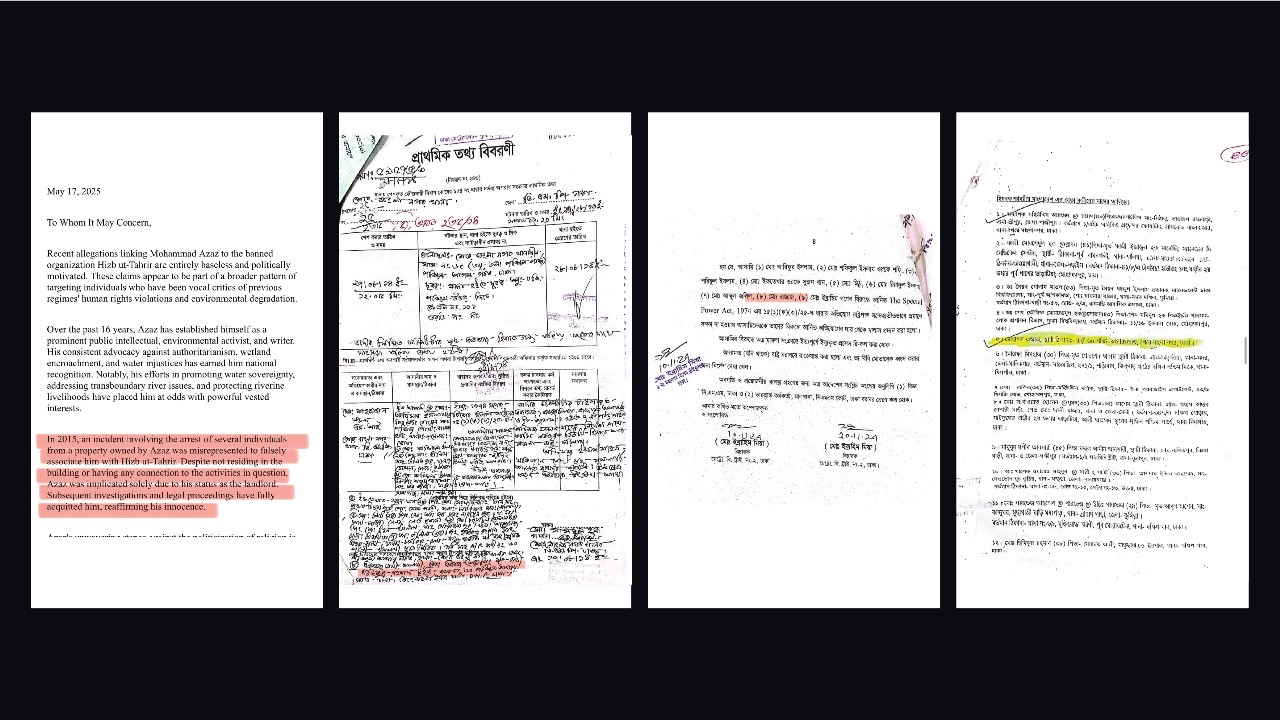
A troubled history
Azaz's political history traces back even further–to his days as a student involved in Islami Chhatra Shibir. Sources allege his transition to Hizb ut-Tahrir occurred in the early 2000s, with his activities drawing the attention of security services in the years that followed.
Official records reviewed by Bangla Outlook reveal that Mohammad Azaz's association with banned extremist networks was not only known to law enforcement–it was documented in formal police communications.
On September 6, 2014, Md. Saifuddin Shahin, then Additional Superintendent of Police of the City Special Branch, sent a letter to the Officer-in-Charge of Sher-e-Bangla Nagar Police Station.
The correspondence, stamped and archived, included a list of individuals identified as senior leaders of Hizb ut-Tahrir Bangladesh. Mohammad Azaz appeared fifth on that list, with his permanent address listed as House No. 60, West Agargaon, in the Sher-e-Bangla Nagar area of Dhaka.
Weeks later, on September 25, a separate report tied to a case filed under the Special Powers Act was submitted to the Chief Metropolitan Magistrate’s Court in Dhaka.
Prepared by Sub-Inspector Sharif Rafiqul Islam, the document again identified Azaz–this time as the eighth accused in a broader investigation into clandestine militant activities linked to Jamaat-e-Islami, Chhatra Shibir, Hizb ut-Tahrir, and a lesser-known group called Islami Mukti Sena.
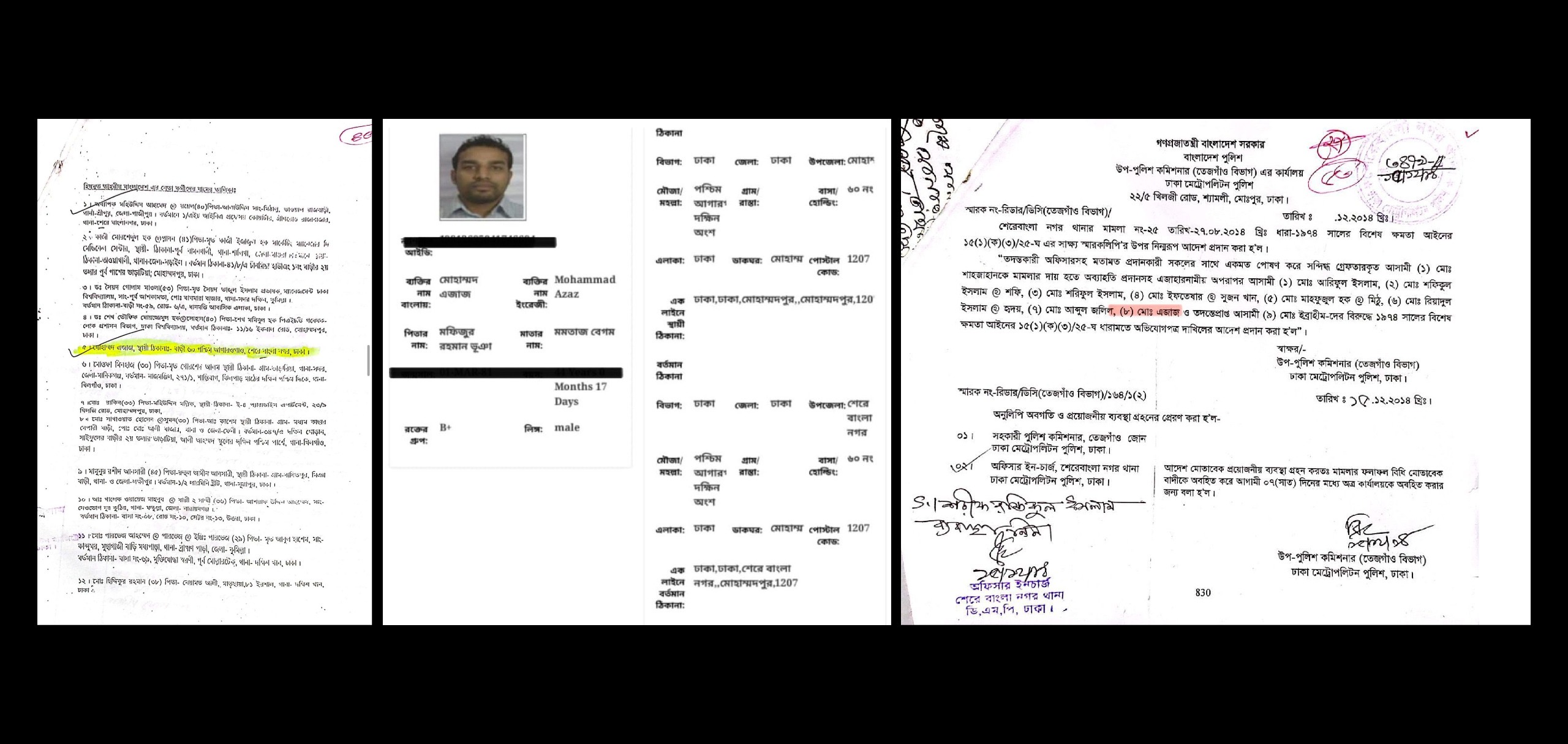
The report noted that Azaz regularly frequented his Agargaon residence and, after securing bail, continued to meet with other suspects in an effort to regroup and revive their banned activities.
Further investigation shows that Azaz, along with eight others, had been arrested under sections of the Special Powers Act for allegedly promoting and financing the operations of Hizb ut-Tahrir.
While the group’s activities were widely denounced by authorities at the time, all nine were eventually granted bail. Azaz, according to security officials familiar with the case, resumed his underground organizational efforts almost immediately.
In August of last year. Following the ouster of the autocratic government of Sheikh Hasina, a broad amnesty and legal review of political cases were initiated–many say under pressure from a new interim government seeking national reconciliation.
By November 10, Azaz and his co-accused were formally acquitted of all charges related to their 2014 arrest.
Soon after, Azaz launched an effort to have Hizb ut-Tahrir removed from Bangladesh’s list of banned organizations. Though unsuccessful, the campaign raised his profile among political intermediaries and policy influencers operating in a rapidly transforming landscape.
Then, in early February, with little fanfare or official explanation, Azaz was appointed the administrator of Dhaka North City Corporation.
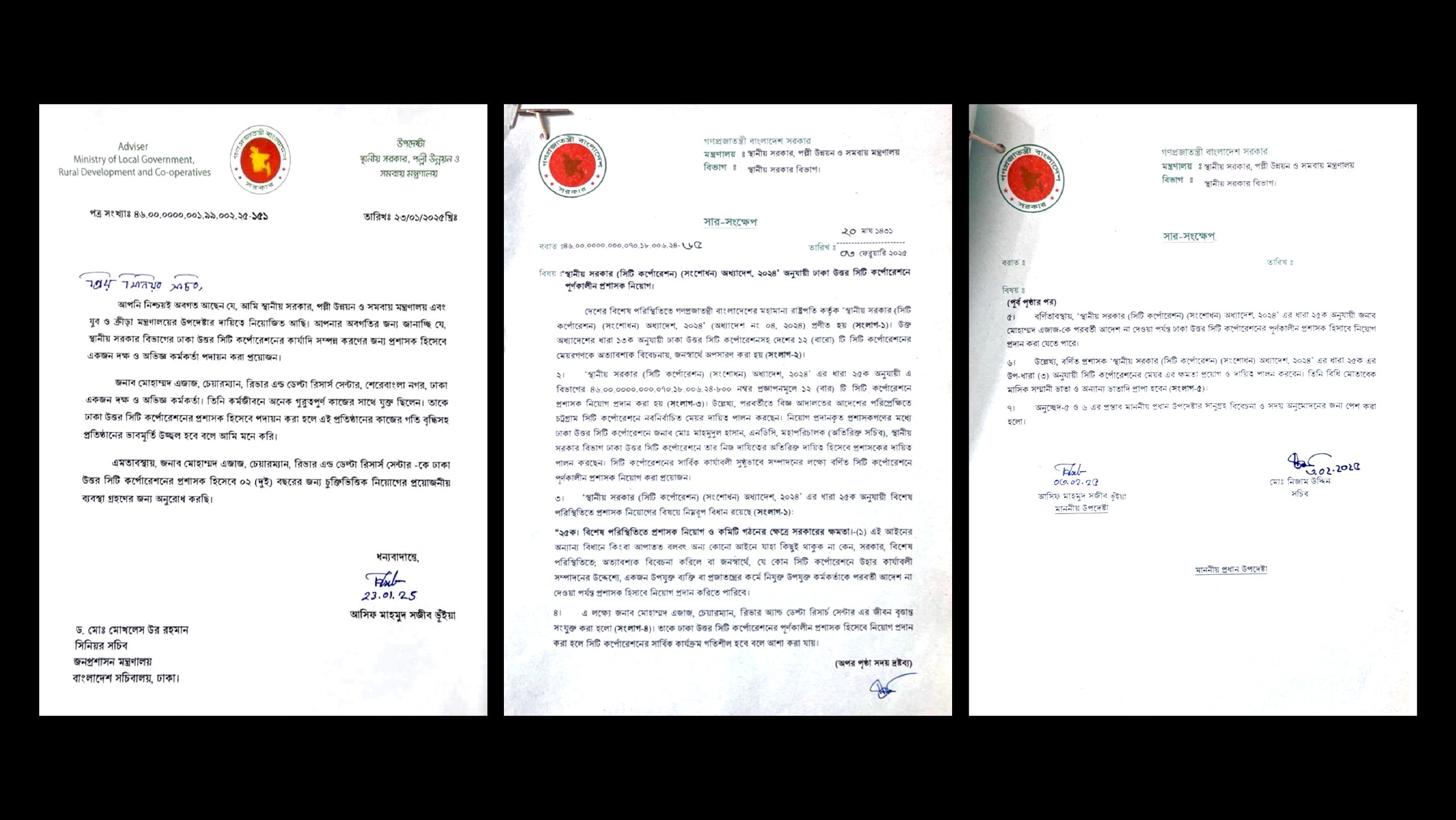
Rise to the top and alleged
corruption
Behind Mohammad Azaz's unexpected rise to the top of Dhaka North City Corporation was a quiet but determined push from within the corridors of power.
According to multiple sources interviewed by Bangla Outlook, the recommendation for Azaz's appointment came directly from Asif Mahmud Sajib Bhuiyan, an influential advisor to both the Ministry of Local Government and the Ministry of Youth and Sports.
A senior female advisor, whose name was not disclosed by sources due to political sensitivities, is also believed to have lobbied discreetly in his favor.
Despite his polarizing past, sources across several security and intelligence agencies confirmed that no formal security clearance was obtained prior to Azaz's appointment—a deviation from standard protocol for such high-level civic roles.
Since assuming office, Azaz has made a series of bold administrative pronouncements. But beneath the rhetoric of reform and accountability, a pattern of questionable decisions has emerged–most notably, in the leasing of one of Dhaka’s most lucrative cattle markets.
Ahead of Eid-ul-Azha, the annual Qurbani cattle markets–known locally as haats–generate massive revenue. Among them, Gabtoli haat is the most coveted.
According to internal documents obtained by Bangla Outlook, Azaz intervened directly in the leasing process, overruling the highest bidder who had offered 76 million taka above the government’s reserve price.
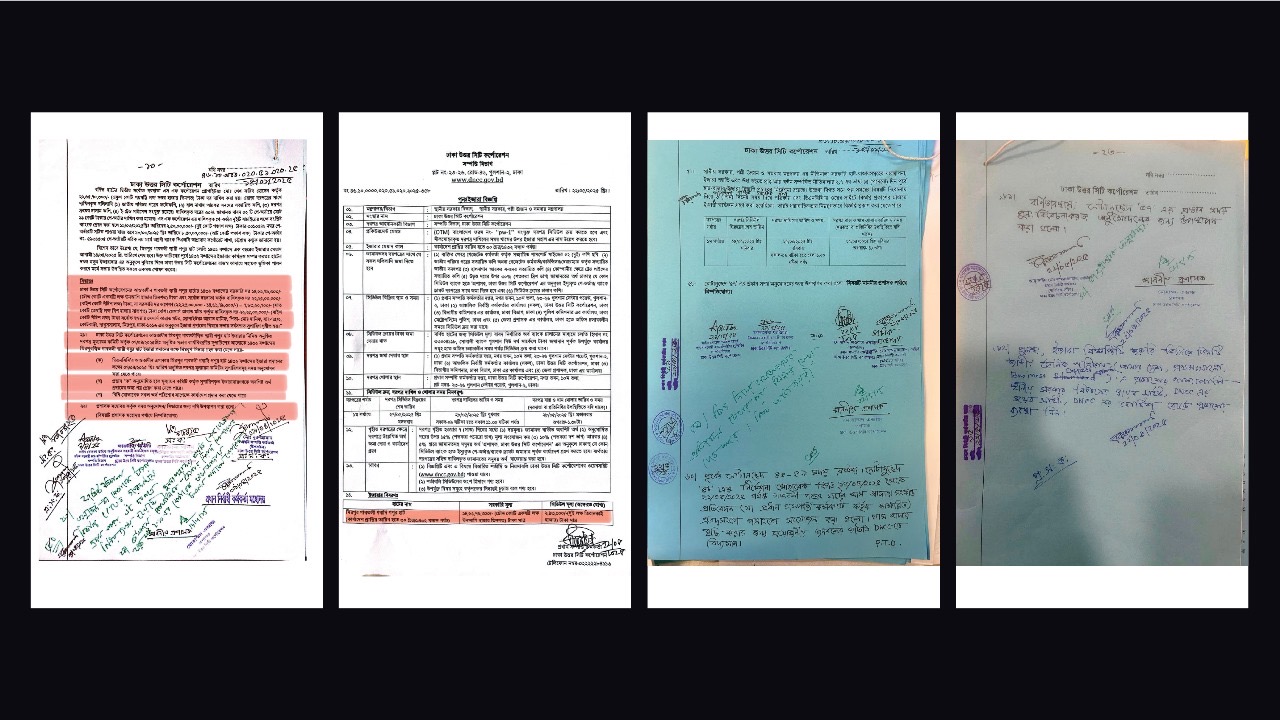
He justified the decision by citing a regulatory clause not applicable to Qurbani haats.
But leaked audio recordings suggest the decision was far from bureaucratic.
In one recorded exchange, Azaz is heard referring to an individual named “Saju bhai,” to whom he had apparently promised control over the lease. Following the publication of the Gabtoli lease notification, Azaz reportedly halted the process with a verbal directive: the lease would go to “Saju,” regardless of procedure.
The decision sparked immediate concern within the DNCC’s leadership. On March 17, 2025, Chief Executive Officer Abu Sayeed Mohammad Kamruzzaman and Chief Estate Officer attempted to dissuade Azaz, warning of media scrutiny and political pressure over the stalled schedule.
According to meeting minutes and transcripts reviewed by Bangla Outlook, Kamruzzaman pressed Azaz to reconsider, suggesting, “Tell Saju to manage the other leaseholders and submit the schedule.”
Azaz replied, “Saju is unwell. He won’t be able to. We have to do it.”
As concern mounted over the legal and ethical implications, the CEO continued to push for transparency. “Then tell Saju’s people who come here to manage it,” he suggested. Azaz dismissed the idea. “They won’t be able to.”
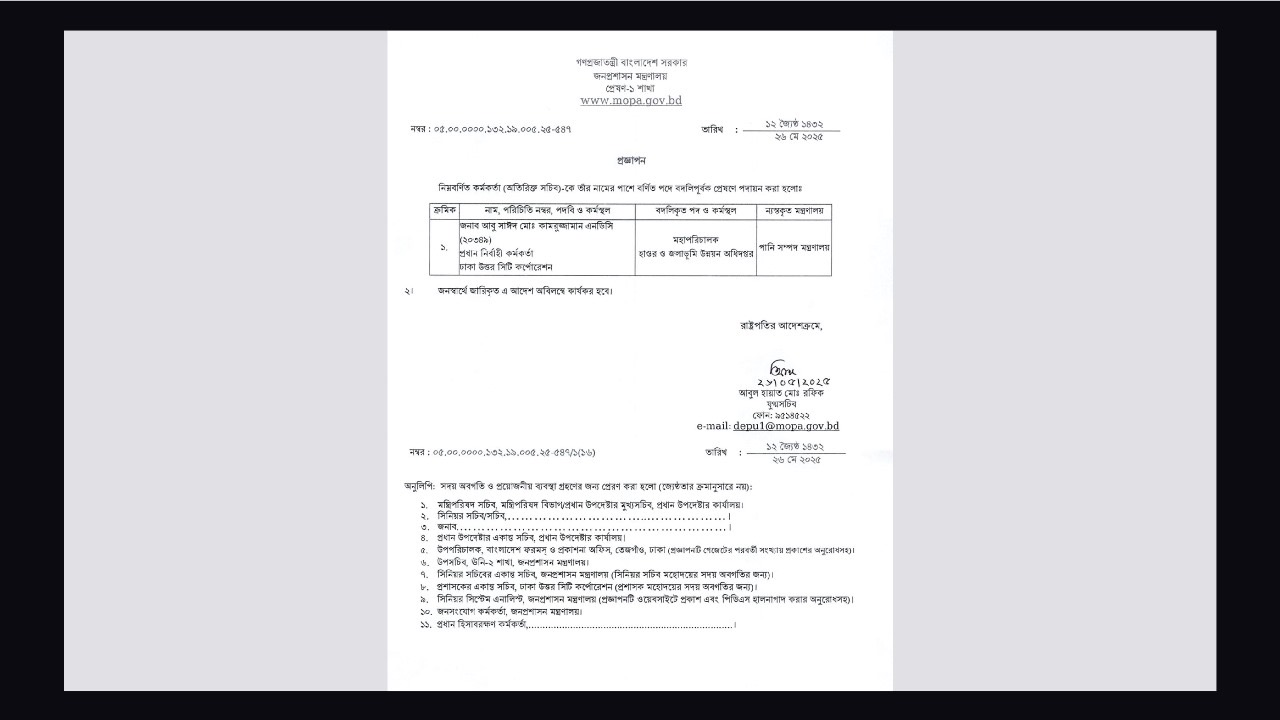
Eventually, when the officials insisted that the lease schedule be released to avoid administrative fallout, Azaz relented–but with a final instruction: “Then give out the schedule, but make sure he [Saju] gets it.”
Despite internal resistance, the process was ultimately manipulated to favor Azaz's preferred party.
In what many within DNCC now view as retaliation, CEO Kamruzzaman–who had persistently advised adherence to procedure–was transferred from his post on May 26.
Repeated attempts by Bangla Outlook to contact Mohammad Azaz for comment—regarding both his alleged ties to a banned extremist organization and the reported irregularities in the Gabtoli cattle market lease–went unanswered.
Last week, mounting frustrations surrounding Ejaz spilled into the streets. In Gulshan, members of Gonoadhikar Parishad staged a protest rally, demanding Azaz's immediate removal and arrest.
The demonstrators, holding banners and placards, accused the DNCC administrator of being a security risk and a symbol of political favoritism gone unchecked.
Faruk Hasan, the group’s spokesperson, directly implicated a senior government advisor in the unfolding controversy. The group issued a 48-hour ultimatum to the current administration, calling for Azaz's dismissal and legal action.
“This is a betrayal of the blood of the martyrs of July,” Hasan said from the rally stage.
—

